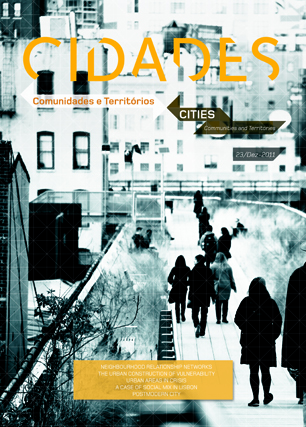Postmodern City, Gentrification and the Social Production of Fragmented Space
Palabras clave:
gentrification, urban fragmentation, postmodern city, culture of consumption, aestheticization of social life, LisbonResumen
A new type of city has undoubtedly been taking shape in the latest decades to which, by commodity and lack of a better expression, is given the name of ‘postmodern city’. The compact city, with sealed social zoning and precise limits, whose centre shows a relative social homogeneity, is torn in a group of distinct fragments where the effects of cohesion, continuity and urban readability give way to more complex and discontinuous territorial formations, which are socially and spatially enclaved. This process is partly due to the fact that, since the end of the 1960s, housing in cities of advanced capitalism has been facing significant changes through the emergence of new housing products and new forms of accommodation by gentrification. As a response to a growing social fragmentation and complexity, these changes have influenced the urban spatial organization towards an increasing micro-scale segregation. By approaching Bairro Alto as a case study we will focus on theoretical formulations whose claims are that this gentrification tendency, as a specific process of socially selective recentring in the city’s central areas, has contributed to a social and residential fragmentation of contemporary urban space. The Bairro Alto, in the city of Lisbon, though repository of rooted and ancient cultural manifestations and traditions, has been facing deep changes in its social fabric with the arrival of new residents who have a particular lifestyle and who produce a particular and reticular social appropriation of the space-neighbourhood.
Descargas
Publicado
Número
Sección
Licencia
Cidades, Comunidades e Territórios by DINÂMIA'CET-IUL is licensed under a Creative Commons Atribuição-Uso Não-Comercial-Proibição de realização de Obras Derivadas 4.0 Unported License.Permissions beyond the scope of this license may be available at mailto:cidades.dinamiacet@iscte.pt.






